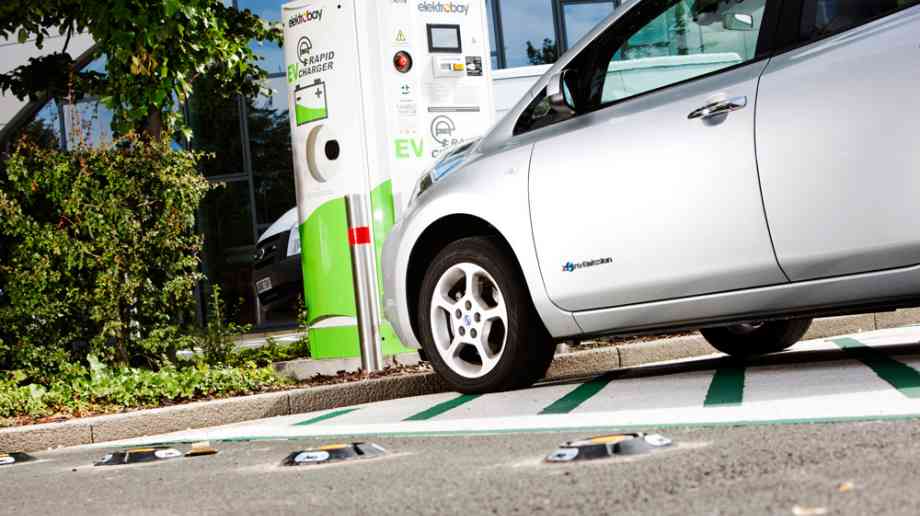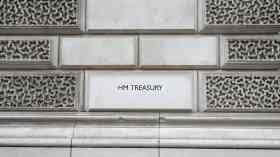Sue Robb of 4Children talks to Julie Laughton and Alison Britton from the Department for Education about the role of childminders in delivering the 30 hours free entitlement.
Oxford City and County Council to install 100 electric vehicle charging stations in residential streets

Oxford City Council, with support from the County Council, has begun a programme to install about 100 electric vehicle charging stations in Oxford’s residential streets to help people go electric.
The trial is thought to be the first on-street charging pilot of its size in the world. It will see six different charging technologies installed, ranging from cable gullies to retrofitting lamp posts with charging stations, with the aim of finding the best solutions for Oxford residents.
Currently, residents who own electric vehicles and have on-street parking in Oxford’s terraced streets struggle to charge their cars.
The first phase of the project will see 30 charging stations installed. 10 of these will be available for the general public, 10 for Co-wheels Car Club vehicles, and the remaining for individual households.
Installation of the charging stations will begun this August and will be ready for residents and the general public in October 2017. The trial will last for 12 months.
The best solutions from the trial will then be rolled out in approximately 100 sites across Oxford.
Oxford City Council chose the locations after calling for Oxford residents who either owned or wanted to own an electric vehicle to come forward.
The network of public chargers will be managed by NewMotion, a Dutch company which brings experience from the Netherlands to support the project.
People who wish to use the public chargers can apply to NewMotion for a free charge card and download the app for real-time information on where chargers are available.
Renewable energy company Good Energy will provide power to the public chargers from its network of solar, hydro, wind and biofuel generators, meaning electric vehicles using the public charging points will be run entirely on renewable energy. Private carers will run from the residents’ own energy supply.
The project, between Oxford City Council and Oxfordshire County Council, is called Go Ultra Low Oxford (GULO) and has been made possible after the two secured an £800,000 grant from the government’s Office for Low Emission Vehicles (OLEV).
The government set up the £40 million GULO scheme to encourage thousands of people to consider switching to an electric car.
The aim of GULO is to reduce air pollution in the city and further lower the city’s carbon emissions by giving more people the option of driving and owning electric vehicles.
Although work by the city and county council has helped reduce air pollution by 36.9 per cent in the last decade, nitrogen dioxide levels are still above the legal limit in some areas in Oxford.
John Tanner, city council executive board member for a Clean and Green Oxford, said: “I’m thrilled that Oxford City Council is leading the delivery of the Go Ultra Low Oxford Project with Oxfordshire County Council.
“This government-funded project is tackling a real issue for many Oxford residents who would like to drive electric, but can’t have a charger at home because they have no driveway.
“By 2027 more people could be buying electric cars than petrol or diesel, and our project will help us prepare for this future.”
Ian Hudspeth, leader of Oxfordshire County Council, said: “We are committed to working with partners to facilitate the transition to a low emission fleet in Oxford and Oxfordshire. This is a great project and a great example of using Oxford as a ‘living lab’ to get new ideas on the ground quickly to benefit residents.
“The pilot element of the project is a learning experience – identifying the best charging solutions for different situations and locations and using our assets in better, smarter ways will help minimise costs. We hope to take what we have learnt from this project and look at how we can support on street charging across the whole of Oxfordshire.”
Richard Falconer, managing director of Co-wheels Car Club, said: “There is a lot of interest from our Oxford members to have more electric vehicles on our fleet so this project is a brilliant opportunity.
“Many Co-wheels members don’t want to add another car to our busy roads and would rather use a shared vehicle when they really need one, now they have the option to reduce the impact on our environment even more by using a zero emission car.”
Company Focus
Located in Bromley, Japanese Knotweed Eradication Ltd has been providing solutions in the treatment and removal of Japanese Knotweed (Fallopia Japonica) for over a decade. During this time we have mastered a repertoire of methods, from herbicidal treatments to landscaping solutions, tailored to address the unique challenges our clients face with this pervasive weed.
Event Diary
UKREiiF has quickly become a must-attend in the industry calendar for Government departments and local authorities.
The multi-award-winning UK Construction Week (UKCW), is the UK’s biggest trade event for the built environment that connects the whole supply chain to be the catalyst for growth and positive change in the industry.
Supplier Profiles
Geo Energy
At GeoEnergy Design, we're on a mission to disrupt the traditional way heating and cooling ha
Latest Features
Professor Harith Alani, director of the Knowledge Management Institute at the Open University explains how AI can be used for good and bad.
Alex Lawrence, head of health & social care, techUK sets out techUK’s Five Point Plan for CareTech.

















